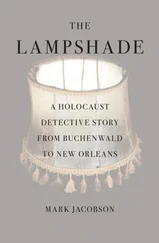A few minutes later, the auto stopped in the area west of the university. We got out of the car, and I looked up at the magnificent edifice of the new Copernicus Memorial Library. Years ago I was involved in its conception. My dream, this world-class facility, had been completed just days before the outbreak of the war.
Frank nodded at me, and we entered the building. Inside, dozens of people were at work, methodically unloading crates of books, stocking shelves and typing labels. Frank led me on a tour of the new facility. We passed Feldgendarmes standing guard in every room as Polish workers moved about with armfuls of books and documents. I recognized several of the Poles as librarians from the university.
After a while, Frank stopped at the top of a sweeping marble stairway overlooking the main floor of the library. We were alone. He said that what he told me in the auto has been commanded by the Fuhrer—the Fuhrer who has been influenced by Heinrich Himmler and the SS. He said this with contempt in his tone of voice. He said that it shall be the law of Poland, and, as the Governor General of Poland, he is obligated to enforce the law.
Abruptly, his demeanor changed; his eyes brightened and he smiled, waving his hand toward the vast space below. He said he had ordered the transfer of the entire collection of the old libraries of the university into this new building for safe-keeping. This is being done, he said, to keep them out of the hands of Himmler and the rest of the SS barbarians who can barely read, let alone appreciate science, literature and art. He told me this is why he has spared me. He knew I had been instrumental in the planning of this new library, and the transfer of thousands of books and documents would require the assistance of former Polish librarians, working under the supervision of trusted professionals. He looked me in the eye emphasizing the word trusted.
I stared at him, dumbfounded, not knowing how to respond. It had been nine months since my arrest, since I was last in Poland. But at Sachsenhausen we heard stories whispered in the bread lines and latrines, told by the most recent arrivals from Poland, stories of murder and brutality, the stripping away of Polish culture, of Polish life, all on the orders of Hans Frank. And now, Hans Frank had brought me back to Krakow—as a “trusted professional”—to supervise librarians? I could only stare at him and nod. It was as if I’d slipped into a bizarre dream.
Frank led me down a hallway and into an elegant office. A short, thin man with gray hair stepped around from behind a massive mahogany desk. He was impeccably dressed in a gray, silk suit. Frank introduced him as Gustav Kruger, the director general of the new Staatsbibliothek Krakau, as this library will now be known. Frank said that he will check on me from time to time, but I shall report directly to Herr Kruger. Then he turned and left the office.
Kruger offered me a chair, then handed me a small, greenish-grey, four-page booklet emblazoned with the eagle and swastika above the word Kennkarte. I opened it. Inside I found my passport picture, my name and date of birth, and my address, which was an apartment unfamiliar to me but located just a few streets away. It also listed my occupation as “librarian.” The Kennkarte, which identified me as nichtdeutschen, a non-German with no Jewish ancestry, also specified curfew hours and the number of food coupons to which I was entitled.
Kruger told me I am free to come and go within the city limits of Krakow. His tone was bland and bureaucratic; his eyes avoided mine. He went on to advise me that I am required to be present in the library from seven o’clock in the morning until six o’clock in the evening, Monday through Saturday. Then he leaned across the desk, looked directly at me and told me I will be watched. That it is the Governor’s explicit order. I am not to make any telephone calls, nor contact family or friends, and all of my correspondence will be read.
I hesitated for a moment, then took a chance and asked Herr Kruger if he knew what has become of my family. He shook his head.
11 August 1940
It is Sunday, my first day off from work. Yesterday, while helping to sort boxes of books at the library, I discovered this leather-bound notebook. Its pages were blank, and it was small enough to slip into the breast pocket of my suit coat. Removing books from the library is strictly prohibited. They enforce the rule by having Feldgendarmes stand guard at the main door of the library. But they are usually preoccupied with their cigarettes and jokes, and no one is ever searched. Thus it was a simple matter to bring this notebook to my apartment where I spent yesterday evening recording the events of the last month.
This morning I sat in my apartment for a long time, working up the courage to visit my home. I waited for this day for nine months, thinking every hour in the hellhole of Sachsenhausen about my Beata, and my nephew, Adam—praying for the day when we would be reunited. But this morning, when the day arrived and I had at last an opportunity, I remembered Herr Kruger’s warning, and I was paralyzed with fear.
As I walked down the street toward my home, I sensed someone following me. I slowed my pace, hoping he would pass me by. When he didn’t, I glanced back at him and he approached me. He was a tall man in a dark blue suit. I knew instantly he was Gestapo. He stood very close to me, and I pressed my hands to the sides of my trousers to hide the trembling. I will never forget what he said: “Your wife is no longer here. She has been sent to a work camp.”
I suddenly felt dizzy and backed up against a tree. I tried to ask where she had been sent, or what he knew about Adam, but nothing came out. The Gestapo man stepped even closer and said, “Do not make any further inquiries, Dr. Banach. No inquiries, about anyone.”
After he left, I sat on the grass under the tree and cried… like a baby. Then I wandered about aimlessly until it was dark. My sorrow turned to rage, rage to despair. Beata and Adam are gone. Where? Sachsenhausen? At the work camp I watched every day, praying I wouldn’t see them among the new arrivals. Could I have missed them?
The thought is too terrible to contemplate.
19 August 1940
This past week has been the most painful of my life. Every moment of every day I think about Beata and Adam. During all the dreadful months at Sachsenhausen my only solace was the belief that they were safe. Beata is an intelligent, beautiful person, and she has not been involved in any anti-German activities. Adam is an American citizen, and America is not at war with Germany. Time and time again, as I lay awake on the sleeping rack at Sachsenhausen, I was able to relieve my anxiety by imagining them going about their business in Krakow: walking along the river, shopping on the Rynek Glowny, sitting down to Sunday dinner.
But now, even that has been stripped away. At times my despair has been so great that I have contemplated the unthinkable. But I must continue on. Beata and Adam could survive; wherever they have been sent, there is a chance they could survive. And as long as there is that chance, I will survive as well.
Here in Krakow, the heel of the conqueror has crushed the life out of the city.
The university is locked up, as are all the schools, bookstores and museums, along with the White Eagle Pub where I debated the future of Poland with my colleagues and students. None of us got it right. They are all gone now. I have learned from the Polish workers at the new Staatsbibliothek Krakau that those who were not arrested with me in ’39 were rounded-up this past spring in an action personally ordered by Frank. More than thirty thousand Polish leaders, politicians, teachers and artists in all the major cities—the last of Poland’s intelligentsia—were arrested and thrown into prisons. It was called the AB Aktion, a shortened version of a typically cumbersome German term meaning “peace-bringing action.”
Читать дальше












